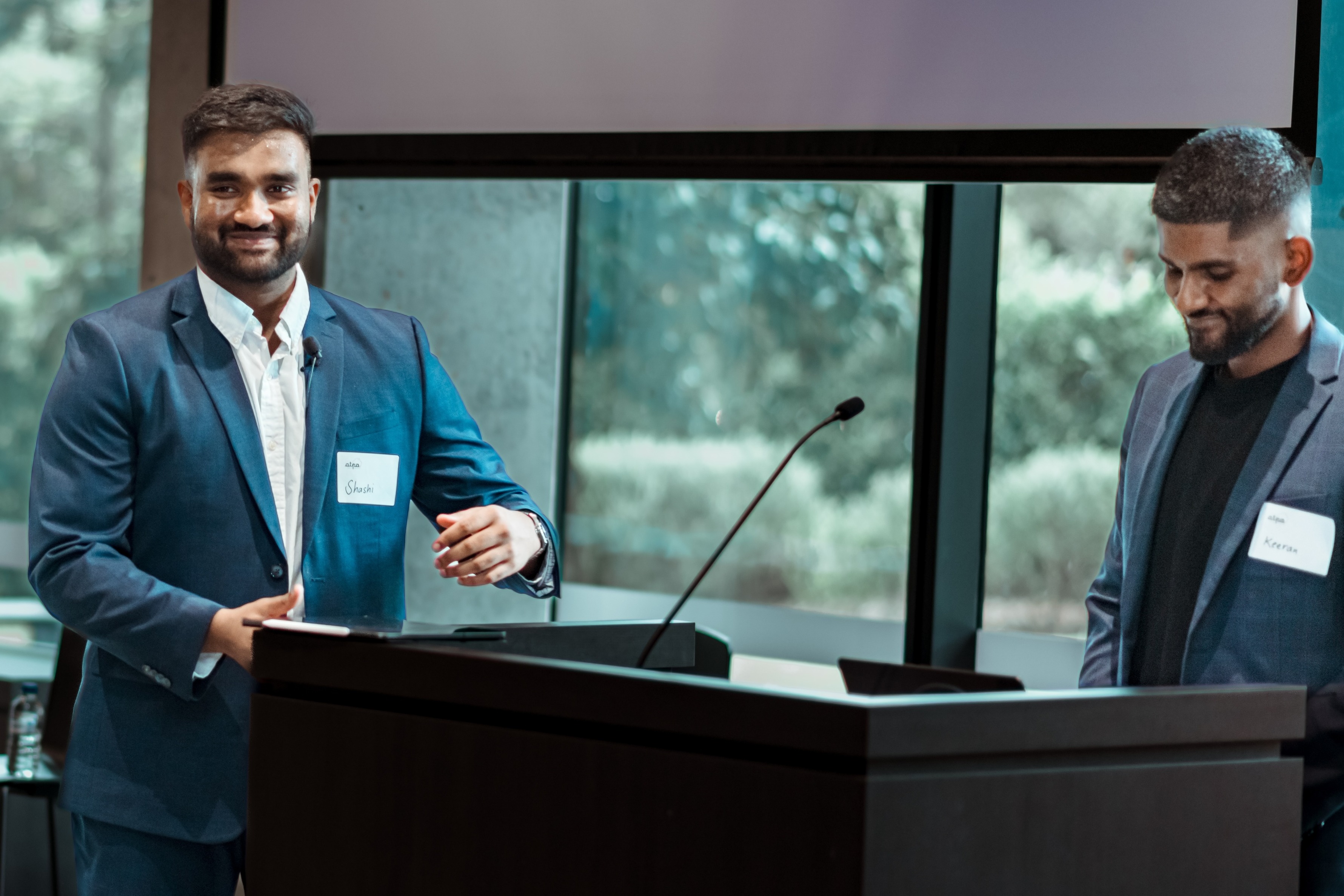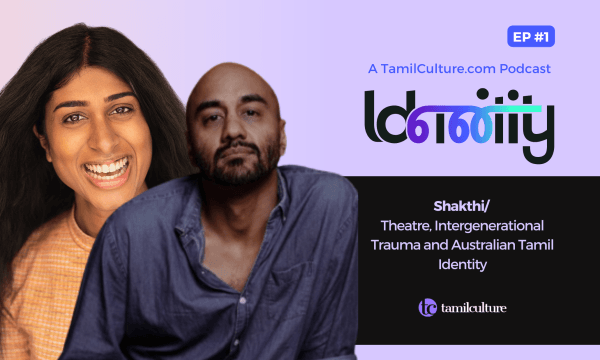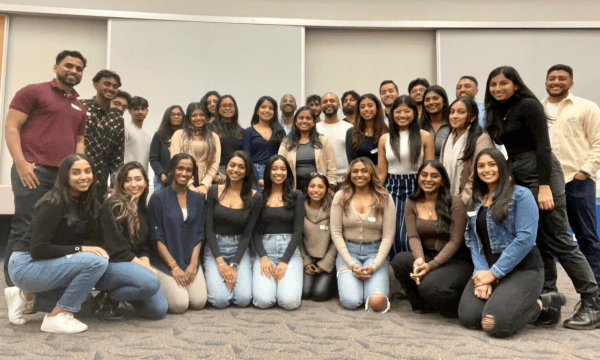
The Australian Tamil Professional Association (ATPA) recognizes the contributions of Tamil professionals in Australia to the broader community by providing them with a platform.
ATPA is a newly founded non-profit organization dedicated to building and fostering a community of Tamil professionals in Australia and connecting with international Tamil diasporas engaged in professional development.
I interviewed Shashi Senthan, the founder of ATPA, to learn about cultural perspectives in Australia and how they influence the education system, the vision behind ATPA, and his aspirations for the organization's future.
Meet your match at myTamilDate.com!
Shashi Senthan is a Tamilian in Australia. He immigrated to Australia from Sri Lanka at the age of 6. He grew up in Canberra, the capital, and then moved to Sydney. Shashi says that the transition between Canberra and Sydney was significant because Canberra leaned towards a predominantly white demographic, whereas Sydney is more multicultural.
In Sydney, I observed a spectrum of individuals, from those embracing their cultural identity to others assimilating into white culture, which prompted a shift in my perspective.
After living in Sydney for eight years, Shashi interned in Canada for a few months. His experience in Canada made him realize it was possible to balance his Tamil heritage while assimilating into Western culture and achieving success. Upon his return, this awareness prompted him to advocate for change in Australia's approach to multiculturalism.
Meanwhile, in addition to community building, Shashi is passionate about dance. Through dance, he taught workshops and eventually launched a dance competition event called Gaana Galatta. This helped him establish his identity as a Tamil dancer in Sydney while expanding his network.
Shashi's involvement in dance highlighted the transformative impact of community building, which sparked his interest in exploring other ways to contribute beyond the creative realm.
The combination of Shashi's upbringing in Australia, his internship in Canada and the UK, and his passion for dance motivated him to seek opportunities to highlight the contributions of individuals in non-traditional fields like marketing and HR beyond the South Asian "doctor, lawyer, and engineer careers," to promote the success of professionalism in any given career path, leading Shashi to found ATPA.
Shashi derived ATPA from his experience in Canada, where he connected with non-profit organization members, the Canadian Tamil Professional Association (CTPA). These connections with like-minded individuals helped bring ATPA to fruition.
Given my reputation for getting things done and my passion for community engagement, I garnered trust and support from the community to lead ATPA's efforts in Australia. This backstory underscores my identity and motivations within the Australian Tamil community.
As Shashi mentioned the cultural difference between Canberra and Sydney, I asked him to provide more context about Australia's cultural views and what multiculturalism means there.
Shashi says, "From my understanding, Australia historically had stricter policies regarding refugee intake, resulting in fewer people of colour, especially a couple of decades ago when my family and I immigrated from Sri Lanka. Consequently, exposure to diverse cultures and perspectives was limited." He elaborates that he stood out for being ''very brown.''
It felt like bouncing between two worlds—trying to fit into the predominantly white society while maintaining connections to my Tamil heritage.
Shashi shares that navigating this dual identity came with challenges because no clear role models had successfully integrated both aspects of their identity that could show him how to embrace two identities confidently.
I said, "You mentioned that you came to Australia when you were six and quickly assimilated into Western culture. However, upon moving to Sydney, you experienced multiculturalism. What motivated you to assimilate into Australian traditions as a first-generation immigrant fully, and what prompted you to rediscover your identity and blend both identities now?"
Shashi mentioned that he assimilated quickly due to Australia's "tall poppy syndrome," which discourages standing out. He explained it as a phenomenon where if you stick out too much, you're the first to face criticism or rejection, likening it to cutting down a standout flower in a field to maintain uniformity.
However, upon moving to Sydney, Shashi found himself thinking more independently. "I realized I connected better with people who shared my appearance, language, and experiences."
Shashi elaborated that his trip to the UK sparked change, where he resonated with fellow dancers. A subsequent trip to Toronto further solidified this realization, emphasizing the importance of community and family due to shared values and struggles from back home. Shashi noted the unity created by second-generation trauma passed down from parents. "I found passion in addressing a gap I observed."
I asked Shashi, "Tell me more about your vision behind ATPA and how your personal experiences contributed to its development."
Shashi describes his appa as his greatest inspiration. "He studied medicine in Jaffna. Upon arriving in Australia, my appa had to take the standardization exam. However, he also worked as a taxi driver, which he found somewhat embarrassing. Nonetheless, he persevered because his children were back home, so he needed to do what was necessary."
His appa's story inspired Shashi to recognize the importance of preserving one's cultural identity. Older generations have faced challenges in maintaining their cultural heritage, and it's now the responsibility of the current generation to honour their struggles and continue the tradition of preservation.
Shashi outlines two motivations: "One is to highlight the contributions of individuals in Australia because there are many outstanding Tamils who have achieved remarkable things. I want to underscore who we are to the broader Australian community: our values, heritage, and history."
Shashi's second motivation is: "The other motivation is recognition, to be acknowledged on a platform where our contributions to the wider community are recognized, not just within our circles. This would provide us with support at the state or federal level to advance our people and underscore our importance."
I asked, "What do you envision for ATPA's future? What impact do you want the organization to have on the community?"
Shashi explains that he aims to establish a solid foundation so that future Tamil organizations have the resources and assistance they need to thrive.
I envision making a significant impact in the community and earning respect as a hardworking and established individual. I also foresee fostering a supportive community where everyone helps each other.
Catch podcast episodes of 'Identity'!



























